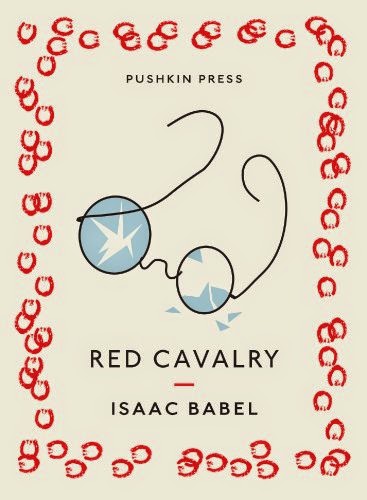Often acknowledged as the most significant of the
Russian-Jewish authors writing in the Russian language, many of his best
stories in Red Cavalry deal with the
alienation he felt as both a Jew and an intellectual. Certainly the key example
is perhaps the best known story from the collection, “My First Goose.” The
narrator, presumably Lyutov who seems to be the narrative voice throughout the
book, but is often unnamed in specific stories, describes his reception joining
with the Sixth Division. The officers immediately see him as a problem and the
Cossacks want no part of him.
Babel, as he often does in his stories, spotlights the
precise detail to illustrate his point, in this case the alienation is clear
from the reaction to the narrator’s glasses. It is the glasses that sets him
apart from the others and they make him welcome by throwing his trunk over a
gate and passing gas. It is only when he kills a peasant woman’s goose and
orders her to prepare it for his diner that they are willing to accept him as
one of their own. When a Rebbe’s son is seen smoking on the Sabbath in “The
Rebbe” or the narrator is unable to ride a horse in the acceptable Cossack
manner in “Argamak,” these are the kind of seemingly random details that tell
the real story.
War is brutal and brutalizing. The language used to describe
it may at times be poetic, but the poetry pales in context. A vicious soldier yearns
for the warmth and beauty of Italy while persecuted Jews live in squalor. The
content may verge on the comical. A woman pretends to be nursing a sack of salt
swathed in cloth in order to get aboard a train. A renegade artist uses
villagers as models for his religious icons.
If there is poetry, it is poetry painting over a hellish
vision. If there is comedy, it is comedy
of the blackest sort.



No comments:
Post a Comment